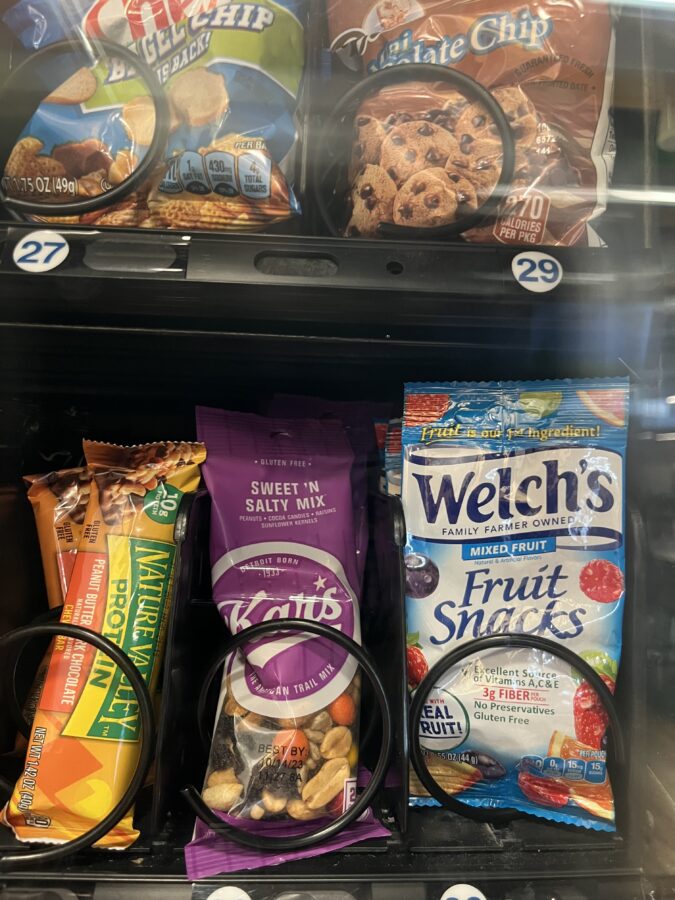Student Theft of Vending Machines
Students took advantage of an unlocked vending machine in the commons at flex on May 11.
On Thursday May 11 during flex, about ten Jesuit students found the vending machine unlocked in the Commons and stole snacks.
Ms. Cathe Kent, Director of Campus Safety, said that this is not the first time snacks have been stolen from the vending machine.
“The business will come and refill, and sometimes they don’t shut it correctly, it doesn’t latch, or it breaks,” Kent said. “I guess it’s easy enough to figure that out and kids have taken advantage of that.”
Kent stressed that she does not want to be looking back at footage and would much rather spend her time walking around and protecting the community, rather than hunting down students for these kinds of incidents.
Kent spoke with Mr. Steve DeKlotz and the two decided to send an email requesting students to self-report. Each one did and reimbursed the 70 dollars that the snacks had cost.
“I always say, just tell the truth,” Kent said. “I was proud that they did come forward and it gave me an opportunity to talk to them about why it is a big deal.”
Kent is not in charge of discipline even with these kinds of situations, but after being a police officer for years, she can confirm that attitude makes a big difference. She also noted that education is an important part of her role and wants students to learn from this incident.
“You’ve got to teach them here because if you go to a store and do that, it’s entirely different,” Kent said.
Kent speculated that some students may not realize the vending machines aren’t owned by Jesuit.
“It’s disappointing because it is somebody’s business and that’s how they make their money,” Kent said. “When you take the food out of that vending machine–that’s money out of their pocket.”
And some students agree.
“It seems like people didn’t really know that the vending machine wasn’t from some big corporation, so learning more about where our food comes from would be helpful,” junior Seamus Ferguson said.
Similarly, junior Reese Griffith takes a look at the bigger picture.
“You aren’t just stealing from Jesuit, you’re stealing from someone who needs that money to support themselves and their families,” Griffith said.
Ethics teacher Mr. Greg Allen, on the other hand, asks what would have been different if the vending machines were owned by Jesuit. The school relies on donation and generosity, as it’s not a state funded school, to have everything that makes Jesuit special and support its staff.
Students, however, were thoughtful and realized that the action of taking from the vending machine had more effect than they may have realized in the moment. Kent, appreciative of students’ honesty and self reports, reflects on the cause of the incident.
In retrospect, Kent thinks that it was a combination of a lack of education about this type of situation, and most of all, teen impulsiveness.
The National Library of Medicine confirms that as the frontal lobe of the brain continues to develop during adolescence, causing teens to make quick decisions or take risks. That—and looking for immediate gratification without fully looking at the outcome.
Allen teaches about making judgements based on virtue, among other ethics systems, which essentially focuses on how the choices we make construct our character and show the virtues we value.
He believes that the theft was not due to lack of judgment, but due to judgment based on immediate gratification- also known as chips and cookies.
Allen said students made their decision with action and intent, but “didn’t look at the circumstances or impact.” That being the business they would affect or the discipline they might receive.





